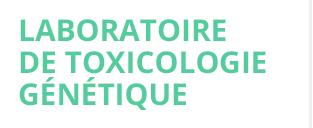At the annual congress of the French Society of Toxicology, held in Avignon on 24 and 25 November 2022, the work of the toxicology laboratory was rewarded with two “best poster” awards.
The first poster focuses on the results of the FREEDOM Project (In vitro effects of mixtures representative of dietary exposure to endocrine disruptors). We showed that, among the 8 mixtures studied, the mixtures associated with 5 of the 7 adult diets (in particular “traditional” and “Mediterranean”) had very similar compositions, and induced similar effects in the various trials. On the other hand, the mixtures associated with the other two adult diets (“dietetic” and “snacking”), as well as the infant diet, were found to have different compositions. In particular, the presence of phytoestrogens other than resveratrol and/or the absence of imazalil, chlorpropham or propargite could explain the differences in activity observed for these mixtures in some tests, in particular the activation of the oestrogen receptor, or the increase in the synthesis of oestradiol.
The second poster focuses on the results of the HEATED TOBACCO Project. We have shown that emissions from heated tobacco induce reduced cytotoxicity compared to cigarette smoke, although this is higher than for e-cigarette aerosols. Only heated tobacco and (mainly) conventional 3R4F cigarettes induced oxidative DNA damage. The DNA damage induced by 3R4F cigarettes is greater than that seen for heated tobacco, even though the exposure doses are much lower. In addition, only 3R4F cigarettes induced a significant increase in chromosomal aberrations. Although no DNA methylation or histone modulation was demonstrated after acute exposure to the various emissions, we identified deregulations of mir-21-5p, mir-let-7a-5p, mir-130, and mir-let-7c-5p in exposed BEAS-2B cells. The deregulation of these 4 microRNAs may be involved in lung carcinogenesis. In conclusion, this study provides innovative information on the acute toxicity of heated tobacco emissions compared to conventional cigarette smoke and e-cigarette aerosols. These results must be confirmed by animal studies, in particular in order to determine the toxicity of these emissions in the long term.


